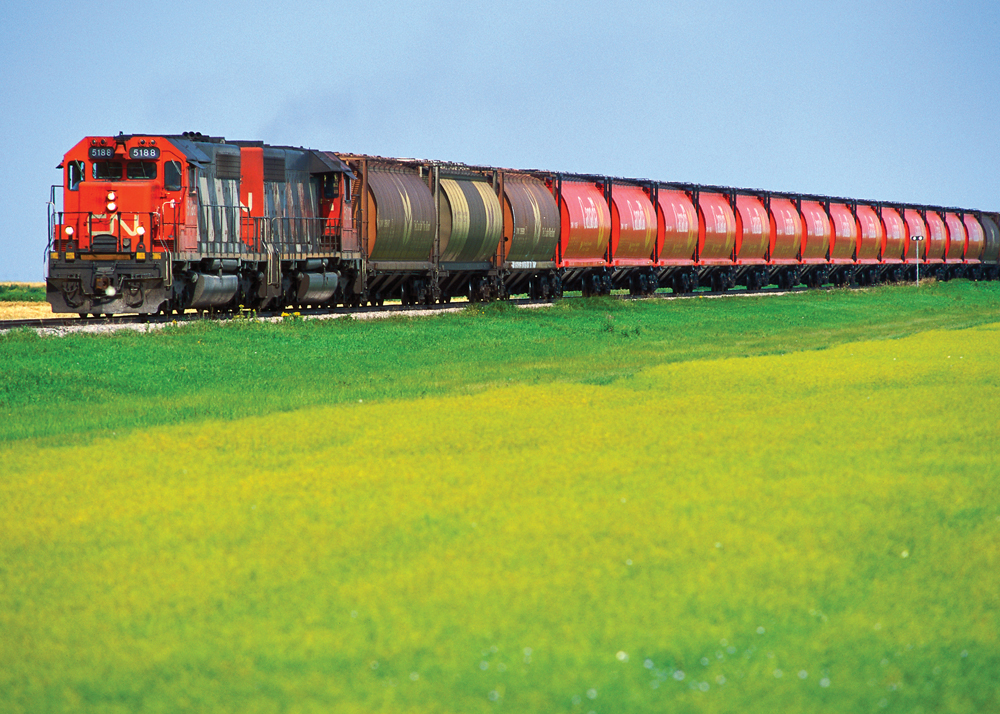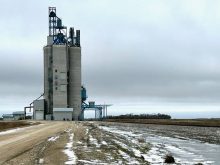The Federal Court of Appeal has struck down rulings by the Canadian Transportation Agency that CN breached a level-of-service obligation in early 2014.
The CTA said the failure was related to supplying two Prairie grain companies with sufficient hopper cars during the frigid early months of 2014.
Justice Marc Nadon ruled the CTA “made unreasonable errors of law which justify intervention on our part” in rejecting the railway’s argument it had to ration the supply of hopper cars because the cold weather disrupted rail operations. It was also struggling to move its share of the largest Prairie grain harvest ever. Nadon awarded CN legal costs in the case and instructed the CTA to reconsider the applications from Richardson International and Viterra in light of the reasons cited in a lengthy ruling loaded with legal precedents.
Read Also

KAP flags risky trade for Manitoba farmers
Tariffs, market access uncertainty, trade diversification and export infrastructure top the agenda at Keystone Agricultural Producers (KAP) annual meeting.
- Read more: Grain sector hails transport reform
- Read more: Emerson speaks out on CTA review reaction
The decision will likely become part of the mix of issues Transport Canada is wrestling with as it prepares legislation promised for the spring by Transport Minister Marc Garneau to resolve long-standing differences among shippers and the railways.
Richardson, Viterra and the Western Grain Elevator Association all declined to comment on the ruling.
The court noted that as a result of the record 2013 harvest, CN implemented a car-rationing methodology and assigned a percentage of its available rail car supply.
There were times during the fall and early winter when the companies didn’t receive their rationed share of hoppers, the court noted. Then the frigid conditions set in and CN had to shorten trains and operate at lower speeds for safety reasons. It further reduced the allocation of cars.
In October 2014, the CTA said it could not intervene in a complaint from Louis Dreyfus about CN’s failure to meet cars promised under a confidential contract. Dreyfus took its case to the Federal Court of Appeal, which later ruled CN was obligated to compensate the grain company under the terms of the contract.
Richardson and Viterra, which didn’t have confidential contracts, filed complaints that CN had not complied with its level-of-service obligation by failing to provide the required hoppers over an extended period of time. The CTA analyzed the railway’s allocation plans under a three-step evaluation it used in the Dreyfus case, which considers the reasonableness of the service request, whether the railway fulfilled it and if it didn’t, why not. It decided that CN arbitrarily undersupplied the companies breaching its level-of-service obligation.
The court ruled that the railway had the right to allocate cars as best it could under the circumstances it faced in the early months of 2014.
Ian MacKay, an Ottawa lawyer who specializes in transportation law, said the court didn’t rule “on the validity of the agency’s three-step level-of-service evaluation test to another day meaning this question remains outstanding.”
The decision cited previous rulings that railways are “not bound to furnish cars at all times sufficient to meet all demands; its financial necessities are of the first order of concern and play an essential part in its operation, bound up, as they are, with its obligation to give transportation for reasonable charges.
“The duty being one of reasonableness how each situation is to be met depends upon its total circumstances. The carrier must, in all respects, take reasonable steps to maintain its public function; and its liability to any person damaged by such a cessation or refusal of services must be determined by what the railway, in the light of its knowledge of the facts, as, in other words, they reasonably appear to it, has effectively done or can effectively do to meet and resolve the situation.”















